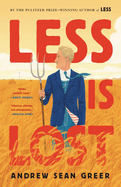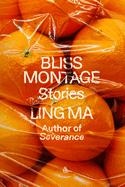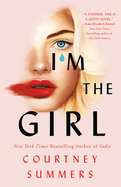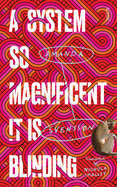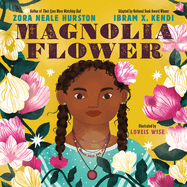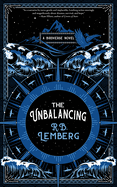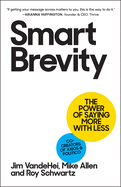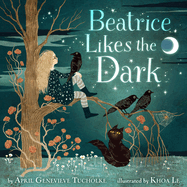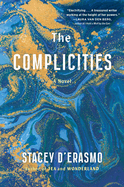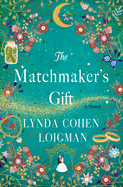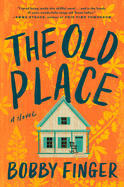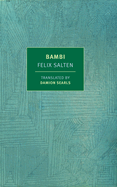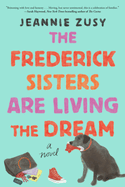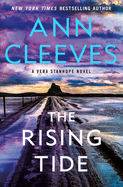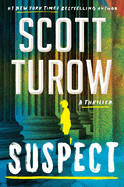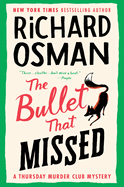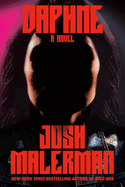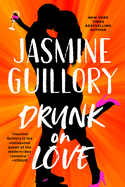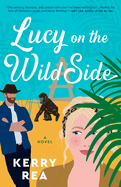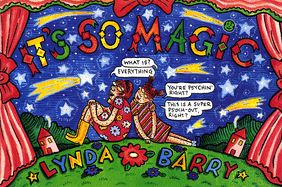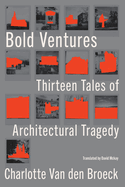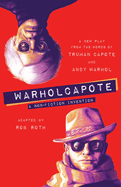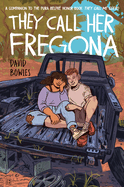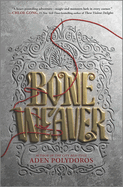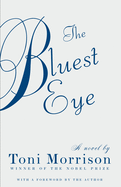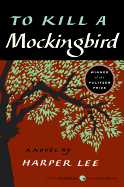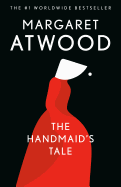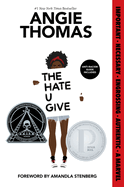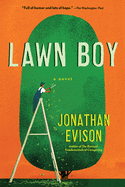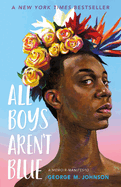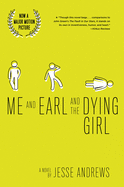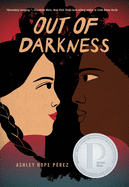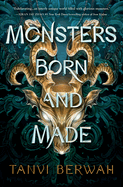Friday, September 23, 2022
In this week's issue, we review Less Is Lost, the sequel to the Pulitzer Prize-winning Less by Andrew Sean Greer, and compare it with Nabakov's Lolita, "in that both are portraits of America from characters who consider themselves outsiders"; in Bliss Montage, eight stories by Ling Ma are "gems gathered together" in an array that begins with a story about Adam and concludes with one about Eve; and in I'm the Girl--part murder mystery, part thriller, part queer romance--Courtney Summers presents "a brutal, raw account of truths behind power and privilege"; plus so much more!
David Rhodes speaks of his return to the Driftless area of Wisconsin for his sixth novel, Painting Beyond Walls (reviewed in this issue), in The Writer's Life: the encroachment of the wealthy into more modest rural areas, and the biases--on both sides--as he also explores intimate relationships.
Less Is Lost
by Andrew Sean Greer
In Less Is Lost--the follow-up novel to the Pulitzer Prize-winning Less, written by Andrew Sean Greer (The Impossible Lives of Greta Wells)--Arthur Less is on the road again. This time he travels the U.S. instead of overseas. Narrator Freddy Pelu, Less's lover, returns. Freddy, who is approaching 40, and 50ish "Minor American Novelist" Less live together in a San Francisco bungalow they call the Shack, previously owned by Less's former lover, poet Robert Brownburn. After Robert dies, Less learns he owes a decade's back rent to the estate. While Freddy narrates from his sabbatical in Maine, the novel follows Less on his money-making travels through the South, Southwest and Mid-Atlantic as he drives a famous science fiction writer and his pug to Santa Fe in an RV that "vibrates dramatically"; accompanies a theater troupe on performances of one of his stories; and fails to do his part while serving on a committee for a literary award.
Some readers might feel this novel is merely part two of Less, but a much more apt comparison is to Vladimir Nabokov's Lolita in that both are portraits of America from characters who consider themselves outsiders. The novel has one exquisite line after another; for example, Freddy describes himself as a man whose "curls have patinaed like scallops on old silver."
"America, how's your marriage?" Freddy asks at one point. Less Is Lost is more than just a gorgeously written sequel. It's also a perceptive observer's entertaining assessment of whether a breakup of the American nuptials is imminent. --Michael Magras, freelance book reviewer
Discover: The sequel to Andrew Sean Greer's Pulitzer-winning novel continues the adventures of its novelist protagonist while making perceptive comments about modern America.
Bliss Montage
by Ling Ma
Six of the eight stories in Ling Ma's debut short story collection, Bliss Montage, have already appeared in the usual prestigious publications (the New Yorker, Granta, the Atlantic). "They can just read them for free somewhere else?" a skeptical mother remarks to her about-to-be-published daughter over lunch in "Peking Duck," arguably the collection's standout story. But the bliss for fortunate audiences is to discover these gems gathered in a brilliant montage that begins with a story about Adam and concludes with one about Eve.
Ma (Severance) opens with an interlinked pair of tales: "Los Angeles," in which a woman lives with her husband, children and 100 ex-boyfriends, including violent Adam, who resurfaces as a serial partner abuser in "Oranges." A childhood friendship on the verge of severing in adulthood turns literally toxic with a drug called "G." A troubled married couple travels to the husband's birth country seeking renewal in "Returning." In "Office Hours," a professor and his student share the same office--many years apart--which houses a mysterious portal. U.S. government employee Eve faces an unusual geriatric pregnancy and chooses single parenthood in "Tomorrow."
Ma channels her own peripatetic experiences: her birth in China, her Utah upbringing and her current Chicago home--each geography included, possibly transformed, in her fiction. Effortlessly moving between the quotidian and surreal, Ma explores identity molded through immigration, parental expectations, cultural colonialism and conflicted relationships for searing, poignant and occasionally (surprisingly) droll gratification. --Terry Hong, Smithsonian BookDragon
Discover: Most of the stories in Ling Ma's superb debut collection have been previously published in various impressive journals, but to read them gathered together promises sheer satisfaction.
A System So Magnificent It Is Blinding
by Amanda Svensson, transl. by Nichola Smalley
Sebastian, Clara and Matilda are triplets in their mid-20s and already familiar with how life can batter, a truth compounded by the revelation of a family secret that upends everything they thought was true. Amanda Svensson's brilliant A System So Magnificent It Is Blinding, translated from the Swedish by Nichola Smalley, is a sprawling family epic exploring complex questions about the power of one's mind and the impact of one's choices.
After recounting the details of the triplets' dramatic birth (one infant--no one recalls who--whisked away in crisis), the novel opens in London where Sebastian is working at the Institute of Cognitive Science. There he meets Laura, who becomes his patient when her world, rendered entirely in two dimensions, goes flat. Part two turns to Clara, fleeing Sweden for Easter Island, an end-of-the-world destination suitable for a possible breakdown in the face of "the brutal, imposing beauty and revulsion of apocalypse, the only sort of beauty that had anything to do with truth." Part three should be granted to Matilda, but even though her story (which includes her synesthesia) is told, the novel denies readers such a neat pattern. Instead, the triplets' stories intermingle across continents and through tremendous upheavals, binding them more tightly even as their lives diverge.
This sharp and expansive novel takes up love, loss, truth and beauty and will challenge readers to decide if they agree when Matilda asserts: "We're all living in different worlds. It's up to each of us to decide what form that world takes." --Sara Beth West, freelance reviewer and librarian
Discover: A System So Magnificent It Is Blinding is a sprawling family epic exploring complex questions about the power of one's mind and the impact of one's choices.
Painting Beyond Walls
by David Rhodes
David Rhodes returns to the setting of Driftless and Jewelweed, as well as many of his fans' favorite characters, in Painting Beyond Walls, his probing and moving sixth novel. Through his 30-year-old hero, August Helm, Rhodes explores tension between economic classes, the tradeoffs of progress, love and sex.
It's 2027, and the Driftless area, dominated by hills and valleys more suited to family farms than industrial ones, has remained largely untouched by the larger technology-driven society. August left home for college, then spent eight years in Chicago as a lab scientist. He "depended on others to furnish him with a sense of self," so when beautiful, wealthy Amanda Clark ends their relationship and he gets laid off from his job, August returns to Words, Wisc. There the recently established enclosed community for rich people seeking refuge from nearby cities has caused friction with the townspeople. August falls in love with a stunning, smart, divorced resident of "The Gate," April Lux, for whom his mother serves as gardener.
As August undergoes a series of awakenings, Rhodes deposits nuggets of wisdom about privilege ("Every life comes with strings and how well you manage them is the only thing that matters," his mother tells August), different models of love, and the complexity of humans such as childhood friends Ivan and Hanh. Ivan tells August, "Money must be made, power used, and sex gotten," with a nightmare work experience on a pipeline to prove it. August must decide if he is ruled by these factors or if he can master his instincts and find a life of the intellect in the town he loves. --Jennifer M. Brown, senior editor, Shelf Awareness
Discover: In David Rhodes's probing sixth novel, a man returns from Chicago to his small hometown and must decide if he can master his instincts to find a life of the intellect in the town he loves.
The Complicities
by Stacey D'Erasmo
Rebuilding in the aftermath of crises comes with no tidy answers in The Complicities by Stacey D'Erasmo (Wonderland; The Art of Intimacy). Suzanne finds herself starting over in a small beach town in Massachusetts after her husband is sentenced to prison for financial fraud and she files for divorce. She isn't taking her ex-husband's calls, and their adult son isn't taking hers. But she's beginning to find a new place, taking back her maiden name and working as a massage therapist. A whale beaches nearby, and Suzanne is overcome with a need to join the rescue effort. But her ex is released early, and the question of restitution for his crimes looms over all of them, including his new wife and his estranged mother, who also narrate portions of the novel.
The Complicities is a thought-provoking examination of the stories people tell themselves and the ways that their actions intertwine, whether deliberately or inadvertently, with the lives of others. Richly crafted passages about the whale and Suzanne's fascination with it highlight in moving ways both the interconnectedness of the world and the way that Suzanne and others can become so focused on the forest that they miss the trees in the form of the individual people around them. "The whale spouted. At least once, its tail moved, and I felt it everywhere, electric, almost painfully resonant. Time, measured by the spouting breaths of the whale, slowed."
In this carefully constructed meditation, readers will enjoy witnessing how characters slowly fit together the pieces of themselves that they had hidden. --Kristen Allen-Vogel, information services librarian at Dayton Metro Library
Discover: The aftermath of a crime sets the stage for an evocative examination of the meaning of guilt and innocence.
The Matchmaker's Gift
by Lynda Cohen Loigman
In 1910, on a ship to New York, 10-year-old Sara Glikman makes her first love match: she introduces her sister to the man she'll eventually marry. Sara's singular talent for matchmaking will lead her to a long career bringing soul mates together. Decades later, Sara's granddaughter, Abby, is a successful divorce lawyer in Manhattan. But after Sara's death, as Abby looks through her grandmother's old notebooks, she begins to suspect, inconveniently, that she may have inherited Sara's gift. Lynda Cohen Loigman (The Wartime Sisters; The Two-Family House) combines family secrets with a rich portrait of Jewish New York culture--and a touch of magic--in her warmhearted third novel, The Matchmaker's Gift.
Moving back and forth in time, Loigman chronicles Sara's career: making her first matches in secret as a teenager, then helping to support her family after her father's death. Sara faces stiff opposition from the local matchmakers--all older and male--and ends up representing herself at a local beis din, or rabbinical court. As Abby digs into her grandmother's story, she also navigates two tricky divorce cases at work, both of which could be affected by the strange new intuitions Abby experiences. Loigman also weaves in Abby's painful memories of her parents' divorce as well as Sara's own trials and triumphs in love. (Even for matchmakers, the course of true love rarely runs smooth.)
Insightful, charming and packed with historical New York details, The Matchmaker's Gift is a tribute to the bonds of family and taking a chance on true love. --Katie Noah Gibson, blogger at Cakes, Tea and Dreams
Discover: In this warm, insightful novel, a divorce attorney uncovers the story of her grandmother's matchmaking career and has some important epiphanies about her own life.
The Old Place
by Bobby Finger
Bobby Finger's unforgettable debut novel, The Old Place, hits the rare and satisfying double note of harrowing and delightful. Roughly 90 minutes outside of San Antonio, Tex., a recently retired schoolteacher navigates various relationships and juggles old secrets in the kind of small community where everyone thinks they know everything about everybody else. Mary Alice Roth is a compelling, although decidedly prickly, protagonist; secondary characters only sweeten this heart-wrenching, warm-and-fuzzy small-town drama.
In the opening pages, Mary Alice is furious at being forced out of her job, and at the young woman--new to town and newly wed into an old family--hired to replace her. She tentatively renews her friendship with neighbor Ellie, hinting at one of the novel's first slow reveals: the two women (one widowed, one divorced) had sons the same age who were also best friends, until a double tragedy. As readers puzzle over the deaths of Mary Alice's husband and son, her (also long-estranged) sister, Katherine, shows up unannounced and unwelcome, all the way from Atlanta. Mary Alice continues her practice of bullying and haranguing the local ladies in preparation for the annual church picnic. Katherine prods her to take responsibility for an old wrong, and together they reopen old wounds. Ellie privately nurses a new romance, only adding to the ever-twisting mysteries and secrets.
At its heart, The Old Place is about the way people relate to one another: family, neighbors, new and old friends. The messiness, pain and grace of these relationships are candidly portrayed in a story that will inspire laughter and tears, making this debut a memorable achievement indeed. --Julia Kastner, librarian and blogger at pagesofjulia
Discover: An irritable retiree in a small Texas town stars in this sweet, poignant story about community, secrets and all the ways to love.
Bambi: Or, Life in the Forest
by Felix Salten, transl. by Damion Searls
For decades now, the Walt Disney film version of Felix Salten's Bambi has broken young viewers' hearts as they are forced to confront life's harsh realities through the death of young Bambi's mother. Though this moment is tragic, it is not the emotional crux of the story in Austrian author Salten's original 1922 text. Instead, the lens widens, deepening readers' understanding of the forest as an interconnected web of life. This fresh translation from the German by Damion Searls highlights the relationship between human behaviors and the destruction of the wilderness. Salten makes the loss of Bambi's mother feel natural, whereas the removal of the old oak is depicted as raw, rough and unnecessary: "All of us who lived there had to feel, and watched how He bit through the old oak with a gigantic twinkling tooth. The tree screamed from its wound, it was so loud, and it kept screaming, and the tooth was screaming too.... It was horrible to hear. Then the poor beautiful tree toppled over." This, too, will break hearts.
Salten's classic is suitable for young readers but would also be appreciated by adults, especially those who are drawn to stories that put human notions and ideals in their place--that is, on the edges instead of at the center of everything. As Bambi grows from doting fawn to independent deer, readers will recognize an unexpected coming-of-age story that will feel right at home in contemporary literature. Searls's translation is beautiful, lingering on vivid descriptions in stunning sentences. --Sara Beth West, freelance reviewer and librarian
Discover: This fresh translation of Bambi is suitable for young readers but would also be appreciated by adults, especially those drawn to stories in which human notions and ideals are peripheral to nature.
The Frederick Sisters Are Living the Dream
by Jeannie Zusy
Exasperating family dramas take center stage in The Frederick Sisters Are Living the Dream, the dynamic, episodic debut novel from Jeannie Zusy. Three middle-aged sisters are bonded by family history. The oldest, Betsy (aka "Bets"), is a free spirit; single and independent, she runs a successful surfing school in California. Ginny, the middle sister, lives in Maryland. A 56-year-old, sugar-craving diabetic and retired high school janitor, Ginny reads and writes at a third-grade level, but her intellectual disability doesn't hinder her from conniving to get what she wants. And Maggie, the youngest, is a dutiful mother of two grown sons. Living an hour north of New York City, she works as a successful storyboard artist for TV commercials and is separated from her husband.
The women's parents are deceased but left ample finances to provide for Ginny's care and well-being. When she is hospitalized after overindulging in Jell-O, Maggie comes to her rescue. Maggie's good intentions are met with opposition when she relocates Ginny, under duress, to a nursing home in Westchester County, N.Y., where Ginny refuses to live with "old people." Betsy wants absolutely no part of--or say in--Ginny's caretaking. Maggie is caught in the middle, forced to juggle familial demands as she struggles to manage her own midlife crisis along with Ginny's and Betsy's. All three women are at personal crossroads.
Zusy's funny, bittersweet story is rife with emotionally dramatic scenes where Maggie's witty, first-person narrative adds levity to serious, tender themes about family, sisterhood, commitment, caregiving and love. -- Kathleen Gerard, blogger at Reading Between the Lines
Discover: A quirky, bittersweet story about three middle-aged sisters faced with caregiving issues that force them to re-evaluate their places in the world.
Mystery & Thriller
The Rising Tide
by Ann Cleeves
Long-time friends often know everything about each other--ideally offering love, despite past histories. But sometimes those secrets can grow into a seething hatred, as Ann Cleeves (The Heron's Cry; The Long Call) so persuasively depicts in The Rising Tide, her superb 10th novel in the Vera Stanhope series.
The novel's title refers to the Holy Island of Lindisfarne, cut off from the mainland on England's northeast coast for hours daily. For five-year intervals during a span of half a century, a group of friends has gathered at a convent turned guesthouse, the place they met as teenagers during a school retreat. Divorces and other life changes have dwindled the group to five. After a delicious meal and much drinking on the first night of the latest reunion, Rick Kelsall, who lost his BBC hosting job over sexual misconduct allegations, is found hanging from a rafter. Vera and her Northumbria Police team soon learn Rick was murdered, even though the death at first appears to be a suicide. Although it seems unlikely any of the sexagenarians could hoist Rick up to the rafters, Vera and her team uncover myriad secrets, exacerbated by a book Rick was writing about his friends, the complications behind his firing and another death that occurred at the first reunion.
The engrossing plot delves into the friends' reminiscences, which seem innocuous but possess an underlying menace. Vera--blunt, intelligent, frumpy and obsessive yet deeply affectionate toward her team--continues to prove her investigative mettle. A visit with Vera--whether in the series or via the television adaptation, now in its 11th season--is always welcome. --Oline H. Cogdill, freelance reviewer
Discover: Detective Inspector Vera Stanhope returns to investigate the murder of a TV journalist who dies during a reunion of friends who have gathered for 50 years.
Suspect
by Scott Turow
The fate of Illinois police chief Lucia Gomez's career relies upon the quirky instincts of private investigator Pinky Granum in Suspect, the 12th book in the Kindle County series from Scott Turow (Identical; The Burden of Proof; Presumed Innocent). The narrator of this slow-burning legal thriller, Clarice "Pinky" Granum, has an insatiable curiosity and it hasn't gotten her killed--yet. That might change when she starts tailing her mysterious neighbor. He has no car and no visible job, and there's never any sound coming from his place. The only thing she knows is that he's dangerous. But Pinky's boss, attorney Rik Dudek, isn't paying her to unravel that mystery.
Rik employs Pinky to learn why three policemen have accused Chief Gomez of forcing them to have sex with her for promotions. Lucia doesn't deny the dalliances occurred but insists there were never strings attached. It is clear that someone has convinced the three cops to go along with a plan to not only run Gomez out of office but also destroy her career. Before Pinky can determine the identity of the mastermind, one of the policemen turns up dead. And somehow Pinky's neighbor might be involved in the whole mess.
Turow's Pinky stands out as a study in creating an interesting character without diverting attention from a taut legal thriller. She's a whip-smart, tattooed bisexual who sports a nail through her nose and a magenta mohawk. Understanding that Pinky's visage is merely armor masking a complicated person with a brilliant mind is Turow's superb method for leading readers toward acceptance and away from judgment. --Paul Dinh-McCrillis, freelance reviewer
Discover: Male police officers seeking promotions from their female police captain claim they were first forced to have sex with her in Suspect, Scott Turow's legal thriller.
The Bullet that Missed
by Richard Osman
Four septuagenarian sleuths, an ex-KGB agent and a Swedish assassin combine for a rollicking good time in The Bullet that Missed by Richard Osman (The Man Who Died Twice; The Thursday Murder Club). The residents of Coopers Chase, a luxurious English retirement village, now have several solved crimes under their belts. But Elizabeth, Joyce, Ibrahim and Ron have not yet sated their curiosity, so at a Thursday Murder Club meeting they decide that they're going to investigate a cold case: the death of journalist Bethany Waites.
Bethany's car went off a sea cliff a decade ago, and she hasn't been seen since. Although there was blood and clothing in the car, her body was never found. Because Bethany was investigating a huge tax fraud ring just before her disappearance, the four sleuths are suspicious. Meanwhile, Elizabeth, a retired MI6 agent, has been receiving mysterious text messages that lead her to reach out to Viktor, an old KGB acquaintance. Inevitably, hijinks ensue. Game show hosts, crime bosses, television news presenters and antique dealers are soon all drawn into the Thursday Murder Club's sphere of influence.
Laugh-out-loud funny, while also showcasing a depth and tenderness about aging, The Bullet that Missed is the delightful third entry in the Thursday Murder Club series. Osman presents a wonderful array of characters who engage in an entertaining and twisty mystery. The Bullet that Missed, heartwarming and hilarious, is perfect for readers who miss Mrs. Pollifax or Miss Marple. --Jessica Howard, freelance book reviewer
Discover: In this hilariously heartwarming third mystery in the Thursday Murder Club series, four elderly sleuths uncover a criminal conspiracy.
Daphne
by Josh Malerman
The twisted Daphne by Josh Malerman (Pearl; A House at the Bottom of a Lake; Bird Box) opens with a tied basketball game with one second left on the clock. Kit, a member of the girls' high school basketball team, steps to the foul line. Before releasing the ball, she silently asks the rim, "Will Daphne kill me?" The ball goes through the net and Kit knows she is about to die.
The night before the big basketball game against summer league rivals, Kit Lamb and her teammates have a sleepover. One of them recounts the story of seven-foot-tall murdered teen Daphne Vann. Legend says that merely thinking about Daphne brings her angry ghost back to life. Naturally, Daphne is suddenly all the team can think about. Kit and her mates treat basketball like a Magic 8 Ball, asking a question before taking a shot. If the ball goes in, the answer is yes; if it misses, it's a no. The rim has never lied to Kit. When she makes the game-winning free throw, Kit knows it's just a matter of time before Daphne will kill her. But first up are some of Kit's Daphne-obsessed teammates. Carla McGowan, the newly transferred detective, is smart--but it's impossible to track a vicious ghost when tight-lipped local residents hold the secret to stopping the murders.
Daphne continues Malerman's streak of masterfully written horror stories set in small-town America. His ability to turn a strange premise (underwater haunted houses, pigs capable of mind control, murderous ghosts drawn forth by thoughts) into believable reality is simply magnificent. --Paul Dinh-McCrillis, freelance reviewer
Discover: A master of strange horror stories, Josh Malerman turns a twisted urban legend upon a high school basketball team.
Science Fiction & Fantasy
The Unbalancing
by R.B. Lemberg
Accolades for Birdverse, the diverse, inclusive fantasy series from R.B. Lemberg (The Four Profound Weaves), include Hugo and Nebula nominations for short fiction. In The Unbalancing, the urgent, bittersweet first novel of the series, a charismatic starkeeper and a shy poet confront the past in hopes of saving their home and their people.
Erígra Lilún has no desire to serve as starkeeper to the unquiet Star of the Tides, one of 12 magical stars the goddess Bird bestowed upon humanity. The star has slept tethered for a thousand years to the archipelago where they live, but now its nightmares shake Lilún's island with earthquakes. The ghost of the original starkeeper haunts Lilún and pressures them to bond with the star, but they refuse because the sleeping star cannot give its consent. Ambitious, impatient Ranra Kekeri has no such qualms and accepts both the glory and responsibility of the position. Lilún is smitten, calling her "someone I would write about through words of summer storm and thundercloud," though they find Ranra's high energy and decisiveness disorienting. Starkeeper and poet take the lead in calming the star, but every move seems to bring their home closer to disaster.
This prequel to Lemberg's poem "Ranra's Unbalancing" intimately sketches its protagonists and the culture they inhabit, which accepts gender as a spectrum. Nonbinary Lilún's journey to finding their place on that spectrum feels deep and authentic. Lemberg gorgeously captures the fragility of life, the courage of despair and the uncertainty of nascent love on the cusp of destruction. --Jaclyn Fulwood, blogger at Infinite Reads
Discover: A dying star draws its keeper and a shy poet together in Lemberg's high-stakes, character-driven first novel in the inclusive and diverse Birdverse series.
Romance
Drunk on Love
by Jasmine Guillory
Jasmine Guillory, author of the Wedding Date series, exchanges busy San Francisco for California's lush Wine Country in Drunk on Love, her newest romance. Margot Noble inherited half of her uncle's winery. This would be great, if people weren't constantly surprised that a Black woman owns a winery and if the other half of the establishment wasn't owned by her recalcitrant brother, Elliot. Tired of arguing with Elliot and irritated that he hired some guy named William without even consulting her, Margot heads to a local bar to burn off some steam. She is delighted to discover a handsome Black man there (a rarity in Wine Country) and, although she's not usually a one-night-stand person, Luke is irresistible. Margot ends up going home with him and having an incredible night.
The next morning, when he arrives at the winery to complete his paperwork, Margot is horrified to discover that Luke is actually Luke Williams, the "William something" her brother hired. Luke is also alarmed that the sexy woman he spent an amazing night with is his new boss. Can they work together without giving in to the strong attraction between them?
As always, Guillory (Party of Two; Royal Holiday; The Wedding Party) brings readers a female lead who is smart and savvy--and knows what she wants out of life. But Margot has a lot to juggle between the winery, her complicated relationship with her brother and Luke's hotness. Fans of Guillory's other books or Abby Jimenez's Part of Your World are sure to love Drunk on Love. --Jessica Howard, freelance book reviewer
Discover: A Black winery owner finds love with a younger man in this lush California Wine Country romance.
Lucy on the Wild Side
by Kerry Rea
Lucy on the Wild Side by Kerry Rea (The Wedding Ringer) is a charming Ohio-set romance, perfect for fans of Kerry Winfrey or Christina Lauren. When Lucy Rourke was a girl, her mom abandoned her for a Hollywood career. Lucy coped with her mother's absence by bonding with Zuri, a gorilla at the Columbus Zoo, and obsessing about Dr. Charlotte Kimber, famous for working with wild Rwandan gorillas.
Fast forward 20 years, and Lucy is a junior keeper working with primates at the Columbus Zoo. Astonishingly, Dr. Kimber's son--Kai Bridges, a famous Crocodile Hunter-esque television host--chooses the zoo to film the next season of his show. Lucy is thrilled to meet the son of her idol--until he turns out to be rude and dictatorial. And, what's worse, as shooting for the new season begins, Kai insists that Lucy must be on camera. Lucy really prefers to stay in the background with her beloved gorillas, but she also wants to be promoted to senior keeper. Can she, all at once, navigate her appalling stage fright; Kai, the handsome jerk; and her mother's reappearance in her life?
Lucy on the Wild Side, sweet and sexy, showcases a woman afraid to ask for more from life. But slowly Lucy comes to realize she deserves love and that Kai just might be the person to offer it. Full of hilariously disgusting animal facts, Lucy's delightful clumsiness and a full cast of amusing zookeepers, Lucy on the Wild Side is sure to appeal to romance fans and animal lovers alike. --Jessica Howard, freelance book reviewer
Discover: In this funny romance, a gorilla-loving zookeeper finds herself falling for the charm of a reality television host.
Graphic Books
It's So Magic
by Lynda Barry
Lynda Barry is a teacher, an Eisner Award-winning comics artist, and a MacArthur "genius grant" recipient. Considered one of the form's most influential creators, Barry helped move the comic arts into the mainstream. It's So Magic collects Ernie Pook's Comeek episodes from the early 1990s featuring teenager Maybonne Mullen and her younger siblings, Marlys and Freddie.
When the book opens, Maybonne and Marlys are living with their grandmother, and Freddie is living elsewhere. In introducing their mom, Maybonne explains, "We don't live with her for she is too high strung." Few mentions are made of their mother, with only occasional references to a possible breakdown. Later, Freddie rejoins his siblings, and at the end, they all go home, a reunion that perfectly captures Maybonne's mixed emotions: simultaneously angry at their mother and overjoyed to see her.
Maybonne and Marlys are perfect foils to one another, equal parts angst and antics. Teenaged Maybonne believes the world is magic even when she is low, experiencing what the ever-exuberant Marlys calls "riding on a bummer." As Maybonne wrestles with issues of faith and war and injustice and discrimination, Marlys manages to pepper her often hilarious segments with unexpected insights. It's So Magic offers true laugh-out-loud moments as well as thoughtful commentary that will feel as fresh today as it did in the 1990s. If it feels like Marlys steals every scene, that's because she does, but it is through Maybonne that readers will find themselves thinking deeply about the human experience, and that is Barry's great gift: to make readers laugh and to make readers think, all at the same time. --Sara Beth West, freelance reviewer and librarian
Discover: It's So Magic shows off comics artist Lynda Barry's great gift: to make readers laugh and to make them think, all at the same time.
Biography & Memoir
Bold Ventures: Thirteen Tales of Architectural Tragedy
by Charlotte Van den Broeck, transl. by David McKay
Belgian poet Charlotte Van den Broeck (Chameleon) has written a lively, deeply engrossing exploration into the nature of architectural creation. She "developed a personal interest in architectural failures--especially in failures that cost the architects their lives," when, in the early 2000s, her Flemish hometown swimming pool was beleaguered by a multitude of problems. Mechanical flaws and technical glitches peaked when the pool started to sink into marshy ground, raising the possibility of swimmer electrocution. The growing list of dangers eventually led to rumors that the disgraced pool architect, left publicly unnamed, had taken his own life.
This led Van den Broeck to consider: "What makes a mistake larger than life, so all-encompassing that your life itself becomes a failure? Where is the line between creator and creation?" Van den Broeck examines this and 12 other doomed architectural structures--churches, theaters, libraries, post offices, galleries, gardens and golf courses in Europe and the U.S.--researching their creators, some plagued by hubris and haste. This includes the Church of Saint Omer in Verchin, France, designed in the 1600s by architect Jean Porc. It took nearly 70 years to build the gothic structure, whose tower became crooked and twisted due to a lack of proper support and the use of unseasoned elm wood that warped. Legend has it that, in defeat, Porc jumped to his death from the "exceptional" spire.
The sad tragedy of suicide resides at the heart of each historically framed, vividly written chapter. The narrative, translated from the Dutch by David McKay, is buoyed by Van den Broeck's meditative insights into all aspects of the creative life. -- Kathleen Gerard, blogger at Reading Between the Lines
Discover: A Belgian poet offers a provocative examination of 13 ill-conceived architectural structures and their doomed masterminds.
History
WarholCapote: A Non-Fiction Invention
by Rob Roth
In 1978, a couple of New Yorkers--artist Andy Warhol (1928-1987) and writer Truman Capote (1924-1984)--got it into their heads to write a Broadway play together. It was Warhol who suggested that they record their conversations on tape; their chatter would be the source material for a great theatrical work. They never wrote the play, and the tapes were forgotten until theater director Rob Roth got it into his head to finish the job. The result is WarholCapote: A Non-Fiction Invention, a funny, dishy, illuminating and affectingly melancholy play that presents a series of dialogues between the titular titans, augmented by well-chosen asides pulled from interviews and other sources.
Across five conversations taking place in New York--at Warhol's studio, Capote's apartment, and a trio of hot spots--the friends cover some of their major life events and hang-ups. Warhol tells Capote about his discomfort with sex and about being almost fatally shot by Valerie Solanas in 1968. Capote vents about his alcoholism, appearance and unhappy childhood. Both men expound on topics such as their creativity, their homosexuality and Jackie Kennedy. Capote comes across as the more philosophical: he argues that a play "has to do basically with truth treated in a fictional form. To see a certain reality about what people are thinking. To see what is going on in their heads and everything." Warhol comes across as the more, well, Warholian: he says of their theoretical play, "I think it should be a situation comedy." Given WarholCapote's zingy odd-couple chemistry, that wouldn't have been a bad idea. --Nell Beram, author and freelance writer
Discover: WarholCapote is a funny, dishy, illuminating and affectingly melancholy series of dialogues pulled from real conversations between the titular titans.
Business & Economics
Smart Brevity: The Power of Saying More with Less
by Jim VandeHei, Mike Allen, and Roy Schwartz
This book will change the way you write. Whether it's e-mails, memos, fiction, tweets or newsletters, Smart Brevity: The Power of Saying More with Less gives readers simple directives from the personal experiences of Jim Vandehei, Mike Allen and Roy Schwartz, co-authors and co-founders of Axios.
Here are a few "Tips & Tricks": subject lines should be no longer than 60 characters; one-syllable words are better than two-syllable words, two-syllable words are better than three-syllable; "active verbs always." Strong data supports the authors' advice. Once their articles moved to the Web and analytics entered their lives, they discovered: "On average, the typical person spends just 26 seconds on a story or update"; "about 80 percent of people... consumed, at most, 490 words." Readers were not staying for their complete stories. Each chapter of their book starts with a "Smart Brevity Count," based on the number of words and estimated time to read them. The authors do not stop at how to improve one's journalism, however. They discuss the art of the newsletter (including internal company newsletters), how to run Smart Brevity meetings, give speeches, communicate on social media--even how to run a company.
The common threads: What's the one big takeaway you want folks to know? Tell them why it matters. Then, before you go, remind them of the one big thing you want them to remember. Chock full of humor, insider lessons learned and lots of bullet points, Smart Brevity may well result in a paradigm shift in the workplace. --Jennifer M. Brown, senior editor, Shelf Awareness
Discover: The founders of Axios confide the secret of their success in communicating with others, to "respect [people's] time and intelligence," then show readers how to do it.
Psychology & Self-Help
The Gospel of Wellness: Gyms, Gurus, Goop, and the False Promise of Self-Care
by Rina Raphael
Boutique fitness studios, clean eating, meditation retreats: they all sound helpful at best, harmless at worst. But what about other offerings from the $4.4 trillion wellness economy, such as intuitive fasting, on-demand manifestation workshops and crystal-assisted exorcisms? Journalist Rina Raphael is skeptical: "Pseudoscience and quacks have always been a mainstay of American culture," she writes in her tour de force, The Gospel of Wellness: Gyms, Gurus, Goop, and the False Promise of Self-Care. "But we've entered a new era of uncritically accepting them and their charcoal-infused nonsense."
Why is this so? Raphael outlines the appeal of wellness to a population disillusioned with traditional medicine and conventional religion, and she spotlights the ways that the wellness industry takes advantage of women's unique vulnerabilities. Women are pressured to be the fairer (and buffer) sex, and they often work the fabled--and exhausting--second shift at home after a day at the office. "In a sick way," Raphael writes, "we're sedating women with consumerist self-care--or worse, silencing them instead of encouraging them to vocalize their grievances."
Although she doesn't give Gwyneth Paltrow of Goop a pass, Raphael admits that she comes to her first book as a consumer of wellness products. She also acknowledges that the industry has done some good by prompting people to consider their health as they shop. But Raphael's evenhandedness doesn't negate the overall radicalism of her thesis. The Gospel of Wellness is the exposé the First World didn't know it needed a lot more than it needs jade vaginal eggs. --Nell Beram, author and freelance writer
Discover: The Gospel of Wellness is the exposé of the $4.4 trillion wellness economy that the First World didn't know it needed a lot more than it needs jade vaginal eggs.
Children's & Young Adult
I'm the Girl
by Courtney Summers
Courtney Summers (The Project) is known for pushing boundaries and exposing the cruel realities young women face. I'm the Girl, her eighth YA novel, is no exception. This part murder mystery, part thriller, part queer romance is a brutal, raw account of truths behind power and privilege.
Sixteen-year-old Georgia "George" Avis finds the body of 13-year-old Ashley James, who was raped and murdered. When Ashley's 17-year-old sister, Nora, shows up at George's house wanting to be told everything, George is pulled into an amateur investigation. Meanwhile, George begins a summer job at Aspera, a grand private resort whose members use it as a retreat to "escape themselves and the world's prying eyes." She aspires to be an "Aspera girl"--a select group of beautiful young women who attend to the "nation's most elite"--but reluctantly settles for being "a glorified fetch." As George sinks deeper into this privileged, wealthy world and develops feelings for Nora, they get closer to finding Ashley's killer, and she will discover that the life of beauty and power she's always longed for is far more dangerous than she thought.
At the center of this thriller is a murder mystery that Summers unravels piece by piece, parallel to the events taking place around George. She makes the case that the paths of these two very similar young women could've easily been swapped, adding to the novel's visceral dread and unease. A bright spot: the slow-burn romance between George and Nora. Their imperfect relationship evolves naturally and brings some levity to an otherwise dark and heart-wrenching novel. Devastating yet honest. --Lana Barnes, freelance reviewer and proofreader
Discover: Courtney Summers's eighth YA novel--part murder mystery, part thriller, part queer romance--is a brutal, raw account of truths behind power and privilege.
Magnolia Flower
by Zora Neale Hurston and Ibram X. Kendi, illus. by Loveis Wise
Freedom forges a path to love in National Book Award-winner Ibram X. Kendi's lyrical picture book adaptation of Magnolia Flower, a short story by Zora Neale Hurston first published in 1925.
The Brook is desperate for a story and the Mighty River, knowing "brooks must be humored," tells one. "Long ago," the Mighty River begins, strong Bentley fled enslavement. "Soon a whole village of runaways" grew around him and he married "Swift Deer,/ a Cherokee woman who had fled/ her own trail of tears." They named their daughter Magnolia Flower "for she came at the time of the flowers opening." The girl grows as the Civil War rages, falls in love and eventually defies her father, fleeing down the Mighty River with her beloved. Nearly 50 years later, the lovers return to the River to find the spot where the River meets the Brook.
Hurston's extensive catalogue of work is focused heavily on the beauty and struggles of the Black lived experience. Kendi (Stamped: Racism, Antiracism, and You) uses poetic and accessible prose to restate Hurston's historical truths. Kendi's adaptation retains a strong presence of the natural world, another prominent element in Hurston's writing. His textual personification of the surrounding environment is delicately and subtly conveyed through Loveis Wise's illustrations. Wise (The People Remember) does not use human attributes for the natural world, instead placing the river, the trees, at the center of sprawling scenes. Their gentle digital illustrations have a vivaciousness that reinforces the depth of Hurston's characters as well as the vastness of the world encompassing them. --Rachel Werner, author and teaching artist at Hugo House, Lighthouse Writers Workshop and The Loft Literary Center
Discover: Love and liberty are intricately intertwined in this contemporary adaptation of Zora Neale Hurston's story about an Afro-Indigenous girl, set in the Civil War era.
Beatrice Likes the Dark
by April Genevieve Tucholke, illus. by Khoa Le
In this deeply whimsical and dazzlingly illustrated picture book, two sisters with opposite interests love each other despite their different personalities.
White-blonde Beatrice enjoys "scurry[ing] into dark corners" like the spiders in the attic, while her straw-blonde sister, Roo, "likes sunshine and birthday parties and smashing crashing blasting noises." For Beatrice, Roo's love of "wearing pink and red and purple" is confounding, and Roo doesn't understand the "black clothes with little bats on them" that her sister wears. The sisters fall asleep glaring at each other across their shared bed. Yet both also dream of togetherness--Beatrice of "two sisters watching fireflies," Roo of "two sisters squeezing lemons for lemonade." When Roo pleads with Beatrice not to leave her alone in the "dark dark dark," the two join hands and each learns how the other sees the world.
April Genevieve Tucholke (The Boneless Mercies) crafts a charming story infused with an air of mysticism--of "milky moonbeams" and potions and songs. The art of Khoa Le (Sugar in Milk) elegantly contrasts and connects the sisters at once. Deeper palettes represent Beatrice's beloved black barn cats and "sleek black ravens"; brighter tones and white backgrounds highlight Roo's "fairy-tale button path" and yellow marbles. Color also ties the girls together. The red of their matching pillowcases appears in Beatrice's "shimmering crimson beetles," garden shovel and picnic basket as well as in Roo's checkered dress, "sun-warm strawberries" and "rosy-cheeked apples." Beatrice Likes the Dark is a "wild, windy," "fierce" and "silvery" piece of art. --Samantha Zaboski, freelance editor and reviewer
Discover: Two sisters, one who loves the light and one who loves the dark, show each other the wonder in both atmospheres in this lushly told and dazzlingly illustrated picture book.
They Call Her Fregona: A Border Kid's Poems
by David Bowles
David Bowles continues his eloquent, autobiographical narration of the "border kid" experience in They Call Her Fregona, a captivating novel-in-verse companion to his 2019 Pura Belpré Honor book, They Call Me Güero.
Joanna Padilla, the titular fregona, is a "tough girl," first introduced in Güero. After Joanna saved Güero from bully Snake Barrera, she let Güero be her boyfriend because it "took guts to ask a girl for help." The pair are now a solid couple, sharing kisses and integrating into each other's families and friend groups: Güero's los Bobbys and Joanna's las Morras ("the Girls"). When Joanna's father is grabbed by ICE in front of the school on the first day of eighth grade, she needs not only Güero's support, but assistance from their entire border community. In between organizing, planning and protesting, Güero's life must go on--he has band practice with los Bobbys, fights against "old school literary nonsense," friends' crushes to navigate and "Decolonized Thanksgiving" to celebrate.
Bowles once more showcases a linguistic feast, storytelling via various poetic forms (sonnet, heroic quatrain, haiku, sestet) and intertwining languages (including Korean). At narrative's end, Bowles appends a helpful 15-page glossary for enhanced understanding. He also adds a delightful note in which he shares that his readers were already requesting "a part two" even before the impressive success of Güero. "But it needs to be about Joanna," they insisted, because "she's the best character in the book." --Terry Hong, Smithsonian BookDragon
Discover: A delightful, poignant companion novel-in-verse to a 2019 Pura Belpré Honor book They Call Me Güero.
Bone Weaver
by Aden Polydoros
Bone Weaver by Aden Polydoros (The City Beautiful) is a transportive YA fantasy about the monstrous nature of oppression.
In the Kosa Empire, people believe that the Three Sisters bestow nobles--never commoners--with magic. Peasants who have magic, then, are suspected as kolduny, witches tainted with the Unclean Force, and are considered criminals. Koschei, a koldun and "madman," leads an anarchic group that wants power transferred to commoners. He is also trying to craft an elixir of immortality, so when his followers find a rare child upyr (resurrected dead), they take her to Koschei. Determined to find her kidnapped adoptive sister, 17-year-old Toma leaves home to find Koschei. She is joined in this undertaking by two young men who are innately at odds: Mikhail, the dethroned tsar who must kill Koschei to get his magic back, and Vanya, a commoner condemned to execution as a koldun because he used magic to save his town from murderous tsarists.
Polydoros's worldbuilding is astoundingly multilayered. The group ventures across ravaged landscapes hosting beautifully sinister creatures of Slavic folklore like rusalki (river spirits) with "gill-split torsos," "fermented fish odor" and eel-slick skin. The trio's slow development into something nearing a queer polyamorous relationship as they shed different shackles of oppression is a marvelous transformation that readers should find breath-taking. There's also an oddity emporium shakedown, a fight on a moving train, a castle infiltration and brief alliances with monsters. Vanya's magic is gorgeous ("buds bursting into white bloom"; inanimate objects crackling with growth), his banter with Mikhail irresistible, his tenderness with Toma warming. Bone Weaver is a heartrending fantasy fraught with class conflict that celebrates reclaiming identity. --Samantha Zaboski, freelance editor and reviewer
Discover: This deeply immersive and visceral YA fantasy follows a ragtag group's perilous journey across war-torn lands to stop the crazed revolutionary Koschei from unlocking the secret to immortality.
Banned Books
The Writer's Life
David Rhodes: Making Our Instincts Conscious
 David Rhodes's acclaimed debut novel, The Last Fair Deal Going Down, was published in 1972, the year he moved to the Driftless area of Wisconsin, where he remained for more than 40 years. He now lives in Madison, Wis. The Driftless area was untouched by the last glaciers, and thus "the roads don't go straight and the farming hasn't been utilized for large-scale agriculture," Rhodes explained. His sixth novel, Painting Beyond Walls (reviewed in this issue), is set in this area, slightly in the future: August Held returns to Words, Wis., after being fired from his Chicago laboratory, to discover a wealthy enclave, Forest Gate, encroaching on his hometown.
David Rhodes's acclaimed debut novel, The Last Fair Deal Going Down, was published in 1972, the year he moved to the Driftless area of Wisconsin, where he remained for more than 40 years. He now lives in Madison, Wis. The Driftless area was untouched by the last glaciers, and thus "the roads don't go straight and the farming hasn't been utilized for large-scale agriculture," Rhodes explained. His sixth novel, Painting Beyond Walls (reviewed in this issue), is set in this area, slightly in the future: August Held returns to Words, Wis., after being fired from his Chicago laboratory, to discover a wealthy enclave, Forest Gate, encroaching on his hometown.
Words, Wisconsin, is a fictional place, isn't it? Was it inspired by a town you know well?
Yes, it was. I lived a little ways out of Wonewoc, Wis. I felt very blessed--we moved there in 1972. It charmed me to death. There were 50 or 60 people living there, and they welcomed us, even though we were outsiders. It gave us a glimpse of an earlier way of living. I made a lot of really good friends there. My whole life kind of rolled out there.
I wanted to purposely take on the rural/urban divide and try to point out some of the endearing features of living in a rural area that are often overlooked. I wanted those to be experienced through the main character when he returned from living in the city for awhile. His sensibility would be somewhat sharpened. He makes the ultimate decision to stay, partly out of a sense of loyalty, and partly out of a decision of compromise between a professional life and a less professional life.
August picks friends who are self-actualized: Ivan and Hanh really know themselves. They wind up being a compass for him. Did you start out with that dynamic in mind? Or did it develop as the novel developed?
A little of both. I had their development from the earlier books [Driftless and Jewelweed]. I wanted to expose August to an example of nonpossessive love, and Ivan and Hanh seemed like good vehicles for that, to give August a new way of looking at what type of relationships were possible. And having that contrast between his relationship with Amanda [his wealthy Chicago girlfriend], and Ivan's relationship with Hanh--it was both evolving and also I'd thought I needed to do that from the beginning.
The relationships August has with Amanda Clark and April Lux revolve around class. Do you see August as a kind of human embodiment of what's happening in his town, with the wealthy encroaching on this idyllic, modest lifestyle?
I wanted very much to have that contrast be highlighted. August first experiences Forest Gate through his friends. He runs into the prejudices of Ivan and of Lester, and to some extent Hanh. Then he vocalizes that prejudice to his mother, and she says, "Why would you feel that way about them, how would you want them to act? They're rich, why shouldn't they have these things? You're judging them; you don't know them at all." I wanted to have that clash of classes. I've been prone in my own life to think, oh, that's a rich person, as if that means anything in terms of character or values, because I grew up in a working-class environment. It's just someone living in different circumstances.
 But there's another aspect here, too, which comes up after August has sex with his childhood crush, Hanh. Ivan left and allowed August and Hanh to complete what they'd left incomplete before August left for college.
But there's another aspect here, too, which comes up after August has sex with his childhood crush, Hanh. Ivan left and allowed August and Hanh to complete what they'd left incomplete before August left for college.
That made Ivan into this character that was much more thoughtful and circumspect than you would normally imagine he would be.
What I wanted to try to do with the book was to encourage readers, or share with readers, that our intuitions, our instincts need to become entirely conscious in order for us to make choices about how to live in an ethical and happy way.
If they're not conscious, if we just act instinctually--when August says, I'm not feeling these things; my ancestors have given me these feelings--and you're not able to distance those from you, we don't live as full a life as we could. We need to make as much of our feelings as possible completely conscious. When our instincts become well-examined, we have more choice than we think we do.
Readers also get a window into the intimate relationship between Winnie and Jacob, August's parents, when he overhears them upon first returning to his house.
I could picture that scene so clearly when I started the book, where August's father had pulled the car he wanted to work on out into the garden where his wife was working so they could be together. They're totally different people with totally different interests who loved each other. I had Winnie in a nuanced discussion about how a particular prayer would work, and then her husband talking about the car he was working on. I had the most fun writing that scene.
The contrast between Ivan's time away working on the pipeline and August's time away in Chicago at first seems dramatically different. But as the novel develops, readers learn they were quite similar in terms of what both men learned about the world. Do you believe one needs to leave a place to know themselves?
I think you gain new perspectives by leaving the place you grew up in. I'm not sure that that means you can't have a fulfilled life without doing it, because that was one of the things I experienced when I first moved to the Driftless area.
I met some people who'd never been more than 20 miles away from where they were born. And they had perfectly well-rounded lives. The depth of knowledge concerning the people and place that they lived in was so profound that I think in a lot of ways it would fill their lives out just as much as a different perspective. It doesn't need to be judged as better or worse.
I interrogated myself in that way over Winnie--when she knew all about August's college roommate from Pondicherri, India, and the yogi who started an ashram near him, and then making August's roommate the perfect gift.
Isn't that something you have to learn over and over, not to be judgmental and not to ground your impressions on earlier things that those impressions remind you of? You form opinions and generate feelings around certain things, and when you run into those things, they bring up old feelings that don't belong in that environment. The things you learn when you're young don't always apply. You've got to relearn new rules. --Jennifer M. Brown, senior editor, Shelf Awareness
Book Candy
Book Candy
"Truth is trouble: Toni Morrison's advocacy against censorship." (via the New York Public Library)
"The most popular 2022 New York Times bestsellers in every U.S. state," as compiled by Grand Canyon University.
Panic at the library: the sinister history of fumigating 'foreign' books." (via Lapham's Quarterly)
Mental Floss shared "75 facts about Stephen King for his 75th birthday."
Monsters Born and Made
by Tanvi Berwah
In Tanvi Berwah's fast-paced, gripping debut, Monsters Born and Made, a young woman competes in a deadly tournament against the upper-caste members of her society to protect her family. This South Asian-inspired fantasy is harrowing and action-packed, with a lovers-to-enemies storyline, class divides and a deadly competition.
A thousand years ago, a group of voyagers fled their corrupted home and arrived on the Islands of Ophir with hope for a better future. What they found were 10 islands with 100-degree temperatures nearly every day, surrounded by the Panthalassan Ocean, filled with "sea creatures that are terror made into flesh." After great wars for control over resources, a "World Renaissance" occurred, in which a group of artists, architects and engineers ("Landers") rose above the rest, favored themselves with the safety of underground caves and assigned roles and a name ("Renters") to those they deemed lesser. A "Landmaster" was assigned to each island, and the POWs and criminals of society were made to fight with "maristags" to remind everyone of the "brutality of this world and what happens when you can't match its power." One prisoner survived, having tamed his maristag--a bipedal amphibious "living nightmare" with antlers and blade-sharp frillfins on its neck that can launch venomous harpoon-like barbs. That prisoner was named "First Champion." In his honor, the Landers began holding a "Glory Race" every four years, a tournament spread over multiple days with 10 charioteers, ages 16 to 20. The 10 race until one champion is left standing. Their prize: more gold than one could ever need in a lifetime.
While the Landers view the race as a celebration of resilience, 16-year-old Koral Hunter and her older brother, Emrik, descendants of the First Champion, see it as survival. Over the years, the Hunters, a sub-caste of the Renters, have risked their lives to capture and breed maristags. Hunters then train and sell the offspring to upper-caste Landers who will be competing in the quadrennial competition. On the last day of this hunting season, Emrik is severely injured. Koral saves her brother's life, but in doing so, allows the last maristag of the "annual upwelling of the waters" around her home island of Sollonia to get away. The teen Hunters return home bloodied and empty-handed. With the family's debt piling up and no money to buy medicine for her youngest sister's failing health, Koral decides to do something no Renter has ever attempted: cheat her way into the upcoming Glory Race--and win.
But Koral is competing against charioteers who have been training their whole lives. One such competitor is "golden boy" Dorian, a descendent of one of the island's founders, whom Koral cared for when they were simply "two kids who liked maristags and the sea and not [their] fathers." Until, that is, he started treating her like a stranger. As Dorian's father tries to eliminate Koral and a renegade group that wants to be "treated like they matter" rises in power, Koral must use tenacity and her knowledge of maristags to survive--sparing her family from the human (and real) monsters of Sollonia.
At the heart of Koral's story is a critique of the South Asian caste system. Through her lush world-building, Berwah deftly discusses oppression, inequality in healthcare and prejudice within castes. The Renters, who live in the desert-like climate of Sollonia, die gruesome deaths under the sun and suffer "lesions from sun exposure," "wounded eyes stitched haphazardly" and "bones broken and rejoined together wrong." Landers live safely in the "Terrafort," a subterranean hollow that protects the residents from the harsh sun and dangerous ocean, never having to worry about medical supplies or a monstrous creature swallowing their family whole. Renters are exposed daily to brutal temperatures, "making do with sand ink tattoos and skaya jelly as a sun shield," while Landers hoard the best heat repellents and sun blockers even if they don't need them.
The Hunters are a sub-caste, somewhere in between the upper elite--who control the family's status and fear any kind of power in a Renter's hand--and Renters, who think Koral and her family are traitorous sellouts. "The margin of the margins is a dangerous place to be," says Koral's mother, and Berwah shows this through rebels humiliating, attacking and blacklisting Koral from trading for loans or much-needed medical supplies.
The citizens of Sollonia aren't the only monsters in Berwah's story, however: actual beasts circle the island, lying in wait to devour its residents. Between the raptors with "saw-like teeth"; pocked-skin, winged "aquabats" with pincers; and giant amphibious half-goat, half-fish "capricorns" with claws instead of hooves, Berwah's creatures are frightening, and add another layer of terror to an already intense story.
It's not all doom and gloom, though. The sweet relationship between Koral and her sister, Liria, is heartwarming. Whether it's the two giggling together about their brother's lack of artistic understanding or Koral risking her life to give Liria a better one, the love they have for one another is the perfect balance to the white-knuckle, heart-pounding action in Berwah's enthralling epic fantasy. --Lana Barnes
Creating a Whole Ocean Full of Monsters
An Interview With Tanvi Berwah
 |
|
| (photo: Yamini Berwah) | |
Tanvi Berwah is a South Asian writer who grew up wanting to touch the stars and reach back in time. She has a Master's in English literature from the University of Delhi, and lives in India. Monsters Born and Made (Sourcebooks Fire) is her first novel. Here, Berwah talks about what inspired the story and how she researched it.
Was a career as an author something you always saw in your future?
Absolutely! As a child, my parents got me children's magazines and comics, and I knew that real people wrote those stories, so that's what I wanted to do as well. Over the years, I considered other careers--such as astronomy and environmental law--but never at the expense of being an author.
What sparked the idea for this story?
Hindu mythology has a brief mention of emerald-green horses at the bottom of the Indian Ocean, and it was such a cool idea to build a story on that I immediately wanted to use it. But The Scorpio Races has already done deadly horses from the sea, and very well at that. It's one of my all-time favorite books! So, instead, my imagination turned from emerald-green horses into this invented creature, a maristag, which looks like a velociraptor with a markhor's head and horns. I had a lot of fun coming up with it--I started to think about the story not just in terms of this one creature, but a whole ocean full of monstrous creatures and what kind of effect that would have on people living on islands.
Take us through how you came up with those "monstrous creatures."
I'm an ocean lover and am interested in learning everything about it, including the extremely bizarre creatures that inhabit the deep. I studied vampire squids, whole books on cephalopods and how evolution takes place in reaches we might never see. One of the more accessible creatures that was the basis of maristags was the marine iguana of Galapagos Islands. I took the idea of the marine iguana and another creature that I absolutely love, the velociraptor dinosaur. It was a process of a lot of mix and match, especially since I wanted the maristags to physically be able to haul chariots. The Scythe Crab, another favorite from the list of monsters, is simply there because my sibling loves crabs. For most of the creatures, I thought about what would frighten me but would also have an element of fun--I wanted these monsters to be scary but intriguing.
How did you come up with this fantasy world? Were there any specific inspirations?
Although I started out reading books that were purely fantasy, I have a deep love of books that blend genres. I specifically wanted to write something that is fantasy but doesn't ignore any technological advances that could be made in any world. Once I knew I wanted to set the story on an island, the rest of it came organically. The nature of an isolated people in an unfamiliar, violent world gave me a lot of ideas: Why would island life be hard, apart from the obvious? Because the sun is unbearable, which makes life dry, deadly. When you're always reading about the climate deteriorating every day in the news, it's bound to stay in the subconscious and show up in this way. And since the islands are surrounded by sea, I researched coasts and remote places like Cnoc na Mara, Cornwall's Pillow Lava, the Giant's Causeway and the black beaches of Iceland, especially Reynisfjara.
Why did you want to include a lovers-to-enemies pairing?
I love a well-executed enemies-to-lovers trope, so I wanted to try the opposite and see where it went. It turned out that the point of contention that turned these lovers into enemies, or at least rivals, naturally served the core story about the class and caste divide, so it seemed like the obvious choice.
What was your experience writing this book? Were you writing or editing at the beginning of the pandemic? How did that affect your work?
Fortunately, I had drafted this book in 2018, which helped me have a good understanding of its world and characters by the end of 2019, when I entered the writing mentorship program Pitch Wars. Participating in it accelerated the re-drafting process so I was done by the end of February 2020. After that, things began to deteriorate, as we all saw. When I started editing with my agent, we were at the beginning and middle of the pandemic, depending on where you were in the world, so things were a bit haywire. And although I hadn't realized it at the time, the news bombardment of how the real-world healthcare infrastructure was overwhelmed and failing played into the story.
What has your experience been like doing publicity for this book? Do you think the move to virtual events has given you more opportunities (or fewer?) as someone living outside the U.S.?
So far, everything has been great. I was also active in the writing community years before I got the deal for this book and, thankfully, made some good friends and built a network, which has been helpful.
I'm sure a lot of people miss in-person events, and I know they can't be replaced, but virtual events truly have made things very accessible, both as a writer and a reader who is now able to attend events and conventions that I couldn't before. And I think it's true not just for me as an overseas writer, but also for American people with disabilities, or those who cannot travel for any number of reasons. So, this inclusivity is only a good thing.
Are you working on anything new?
I'm currently drafting book two which is set in the same world on another island. It expands on the lore and what exactly maristags are and where they come from, which are questions I've been getting a lot from readers who have had advanced copies! I'm excited to finish this book! --Lana Barnes
Great Reads
Rediscover: Gender Queer
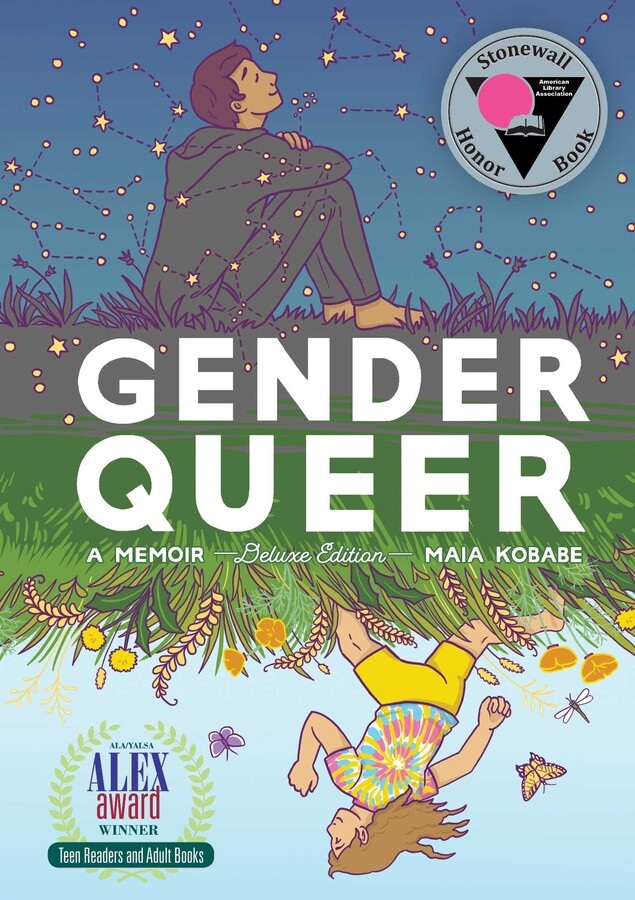 Banned Books Week is nearly over, but the fight for free speech in schools, libraries and bookstores continues. According to the American Library Association's Office for Intellectual Freedom, Gender Queer by Maia Kobabe was the most challenged book of 2021 and continues to be a lightning rod for censorship attempts. Thankfully the most egregious of these efforts was struck down late last month, when a Virginia Beach Circuit Court judge dismissed a case seeking to bar Barnes & Noble from selling Gender Queer and another book, Sarah J. Maas's A Court of Mist and Fury, to minors without parental consent. Though this escalation was thwarted, Kobabe's book has already been stripped from multiple schools and libraries and is sure to face future challenges.
Banned Books Week is nearly over, but the fight for free speech in schools, libraries and bookstores continues. According to the American Library Association's Office for Intellectual Freedom, Gender Queer by Maia Kobabe was the most challenged book of 2021 and continues to be a lightning rod for censorship attempts. Thankfully the most egregious of these efforts was struck down late last month, when a Virginia Beach Circuit Court judge dismissed a case seeking to bar Barnes & Noble from selling Gender Queer and another book, Sarah J. Maas's A Court of Mist and Fury, to minors without parental consent. Though this escalation was thwarted, Kobabe's book has already been stripped from multiple schools and libraries and is sure to face future challenges.
Gender Queer (Oni Press) is a graphic memoir of Maia Kobabe's experience growing up nonbinary and asexual. Kobabe, who uses the pronouns e, em and eir, serves as both author and illustrator. In our review, Shelf Awareness associate editor Dave Wheeler called Gender Queer "[a] challenging yet heartwarming memoir [that] succeeds on all fronts." Originally published in 2019, Gender Queer won the 2020 ALA Alex Award and was a 2020 Stonewall-Israel Fishman Non-fiction Award Honor Book. In July 2022, Oni Press published a deluxe hardcover edition of Gender Queer with a new cover, bonus art and sketches, a foreword by ND Stevenson and an afterword by the author. --Tobias Mutter


